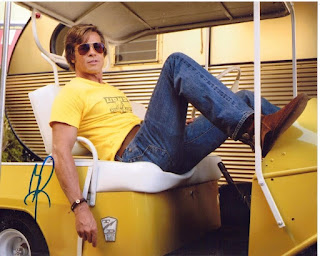 Karl-Heinz "Kalle" Rummenigge
Karl-Heinz "Kalle" Rummenigge (born 25 September 1955 in
Lippstadt) is a German former
football striker.
He had his greatest career success with German club
Bayern Munich, where he won the
Intercontinental Cup, the
European Cup, as well as two league titles and two domestic cups.
A member of the
West Germany national team, Rummenigge won the
1980 European Championship and was part of the squad that finished runner-up in the
1982 FIFA World Cup and at the
1986 World Cup. He was also honoured twice as
European Footballer of the Year.
He is currently the chief executive officer of the FC Bayern München AG, a daughter company of
Bundesliga team
Bayern Munich, as well as being the acting chairman of the
European Club Association.

Rummenigge was born in
Lippstadt, North Rhine-Westphalia.
He joined Bayern Munich in 1974, coming from the
Westphalian
amateur side Borussia Lippstadt, for a transfer fee of ca. €10,000. He
immediately showed great strength as a dribbler. His striking qualities
were initially insignificant, but would find great improvement in later
years, particularly after the arrival of coach
Pal Csernai in 1979. In
1979–80, he scored 26 goals and became for the first time the
Bundesliga's top striker, a feat he could repeat in
1981 and
1984 with 29 and 26 goals, respectively.

With Bayern he won the
European Cup in
1975 and
1976. In
1975,
he did not take part in the final of the competition, whilst in the
year thereafter a glass of brandy sufficiently prepared the nervous
Rummenigge to contribute to the defeat of
AS Saint-Etienne. In the same year he became also part of the team that prevailed in the
Intercontinental Cup finals against
Cruzeiro EC from
Belo Horizonte.
In the era of coach Csernai he found in midfielder
Paul Breitner
a congenial partner and he formed such a formidable one-two-punch that
they were only called Breitnigge (name invented by German newspaper
Bild).

The club, then often dubbed as "FC Breitnigge", won in this period the
Bundesliga title in
1980 and
1981, and the
DFB-Pokal in
1982 and
1984. A renewed triumph in the European Cup was denied, when the club lost the
1982 final narrowly against
Aston Villa. In the season before Rummenigge was top-scorer in this competition with 6 goals.
His substantial contribution to the successes of the club and the
German national football team found also expression in personal honours. In 1980, he was named
German Footballer of the Year and in '80–81 the
European Footballer of the Year.

In 1984, aged 29, he was sold for a record fee of €5.7m to
Internazionale. Despite a notable beginning, in which he helped the team to compete until the end for the
1984–85 Scudetto, Rumenigge's career in Italy was mostly marred by injury problems. At the end of his contract in 1987, Rummenigge moved on to
Swiss first division club
Servette FC in Geneva, where he saw his career out. In his last season,
1988–89, he had his last success, becoming top scorer in the Swiss league with 24 goals.
With the
West German national team he took part in the
1978 FIFA World Cup,
1982 FIFA World Cup and
1986 FIFA World Cup. In 1978, West Germany exited in the second group stage of the tournament. In 1982 and 1986, the team was runner-up behind
Italy and
Argentina.

Rummenigge also took part in two
European Championship tournaments. In the
1980 competition in Italy, West Germany defeated
Belgium in the final by 2–1 and won the trophy. The
1984
tournament is engraved as one of the most unsuccessful undertakings of
the German national team. West Germany was already ousted in the group
stage.

From 1990 until 1994 Rummenigge worked as a TV co–commentator for
matches of the German national team. In autumn 1991, Bayern Munich
invited
Franz Beckenbauer
and Rummenigge to return to the club as vice presidents. Rummenigge
held this position until 2002, when he was appointed Chairman of
Executive Board of the newly corporatised football department of the
club. According to the club, "in his role as chairman he is responsible
for external relations, new media, board affairs and representing the
holding company on national and international bodies."

In April 1983, the British pop duo
Alan & Denise recorded a tribute song about his "sexy knees" in the song "Rummenigge, what a man". The record reached number 43 in
German charts.
In March 2004 he was named by
Pelé as one of the
top 125 greatest living footballers.
His brother
Michael Rummenigge was also a noteworthy footballer. He played as forward for Bayern Munich and
Borussia Dortmund from 1982–88 and 1988–94, respectively. He also represented Germany on two occasions between 1983 and 1986.
Rumenigge and his wife Martina have three sons and two daughters born between 1980 and 1991.

- He is the eleventh most capped player for Germany (inclusive of three East German Players)
- He is the fifth most successful striker for Germany (inclusive one East German player)
- He is the tenth most prolific scorer of all time in Bundesliga history
- With Bayern Munich he is the second most prolific scorer of all time in league history after Gerd Müller
Karl-Heinz Rummenigge (n.
25 septembrie 1955 în
Lippstadt) este un fost jucător de
fotbal german.
Cel mai mare succes l-a avut la clubul german
Bayern München cu care a câștigat
Cupa Intercontinentală,
Liga Campionilor, două campionate și două cupe.
A fost în
Echipa națională de fotbal a Germaniei cu care a câștigat
Campionatul European de Fotbal din 1980 și a făcut parte din echipele care au terminat pe locul doi la
Campionatul Mondial de Fotbal din 1982 și la
Campionatul Mondial de Fotbal din 1986. A primit de două ori
Balonul de Aur.






























